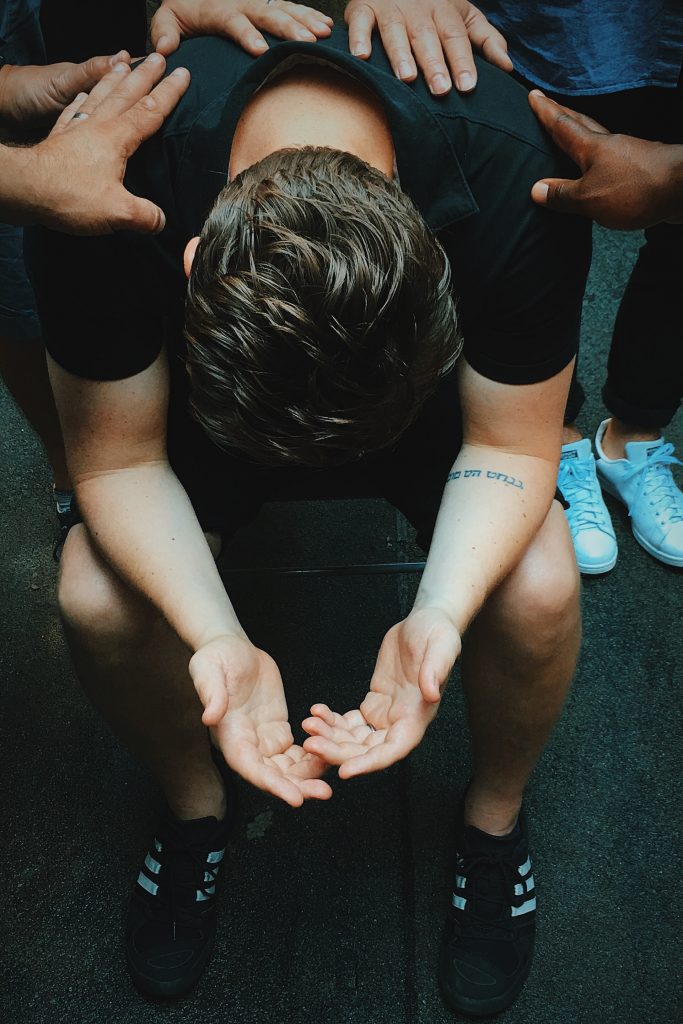Lets start a conversation about men’s issues.
Here is a list of the societal issues that men and boys face.
- Unrealistic stereotypes and portrayals of men in the media. Men are portrayed often as misogynistic, think about sex, beer and football with few other redeeming qualities. On the other hand, there is the financially successful man, who goes to the gym, rich, handsome and brilliant an almost impossible ideal. “Where are the portrayals of the many men who are complex, kind, communicative, nurturing? The men who are able to be both warriors and poets as needed, able to love deeply and for the long-term, with multi-dimensional abilities about a whole host of things?” (The Good men project).
- The Disposability of men and boys. Historically men have been the “hunter-gatherers”. In caveman times they were out getting food to feed the family. They have been the first to go to war, build our infrastructure, the last to leave a sinking ship. The consequences are that men die in workplaces where they do jobs that are dangerous and are often taken for granted.
- Men and Boys are often victims of rape and sexual assault. They find it incredibly difficult to access the right services, feel confident that they will be listened to and a “society-driven” reluctance for them to come forward.
- Parenting stereotypes still exist and women are still seen as the one who may be more able to look after the child. Although this is changing, the perception of a stay at home Dad is one who may be a “slacker or weird” for wanting to take time out to look after their child. They are there doing this amazing thing because they want to be part of their children’s lives. However, they aren’t supported in learning their role as a dad the same way as women are supported to become mums. Things are slowly getting better in the workplace ( UK ) and there are opportunities for shared leave and paternity leave.
- Gender and sexuality. There is still homophobia, transphobia and assaults against the LGBT community. Does this have something to do with the perception of what a “real man ” is? How long will it take for all types of gender and sexual expression to be seen as “normal?
- The pressures of financial success. There is still a huge amount of pressure from society and from men themselves to provide for their families. The pressures can lead to feelings of failure.
- Raising Boys today. Boys have unique challenges. In the past, the two ways of raising boys were to either dismiss bad behaviour with “boys will be boys” or to admonish boys for showing signs of weakness, particularly emotional weakness, with the phrase “be a man.” Do not teach your boys to be emotionally strong, encourage your boys to talk and if they don’t like to sit down and talk use an activity like walking to get them to open up.
- Children raised by caring fathers have better educational outcomes, better verbal skills, intellectual functioning, and many other advantages. “No matter what the current state of manhood is, the role of a husband and a father is invaluable and will never be substituted. Traditional values are worth fighting for and deserve for existence in order to create healthy generations.” (Goodmenproject 2019).
What society needs to start doing.
- Value male role models
- Acknowledging the contribution of men and boys
- Improving male health
- Tackling discrimination and disadvantage
- Fostering positive gender relations
- Making the world a safer place for everyone
Male Mental Health
Despite the overwhelming evidence that men and boys face a multitude of physical, mental and social health and wellbeing many still promote outdated stereotypes and cliches.
“Man Up”
“Boys don’t cry”
“Men and boys don’t need help”
In England 1:8 men have a common mental health problem. Yet men are still reluctant to seek help from friends, family and professionals.
Male Suicide – the silent epidemic

In 2017 there were 5,821 suicides registered in the UK of these male suicide accounted for 75% ( 4382 ). In the UK, suicide is the highest cause of death among men under the age of 45. In fact, the highest suicide rate in the UK is recorded for men aged 40–44. These figures are alarming but statistics show that the suicide rate has not increased since the late 1990″s. (ONS 2019). In Spain statistics are equally if not more shocking with between 3,500 and 4,000 people a year (INE 2017). A further 8,000 people require hospital treatment after failed attempts to take their own lives.
Higher rates of suicide are mainly found in minority communities including gay men, war veterans, men from BAME backgrounds, and those with low incomes.
Male suicidal behaviours are very often linked to a number of external factors. These can include illness, a business failure and/or forced retirement, thus suicide-prevention plans often fail to address individual internal or psychological factors such as feelings, personal shortcomings, or relationship issues. Research has suggested that lower suicide rates among women are due to them being able to manage complex emotions, as well as having flexible coping strategies than men. This suggests that men are socialised to internalise their feelings and this could stop them from reaching out for the help that they need. (BPS.org 2019).
How can we all help?

Encourage them to talk, share emotions and develop new identities not solely defined by male stereotypes. If you suspect that someone you know is feeling suicidal or has attempted suicide then getting them to open up and seek help is essential.
In England, men rarely seek help and account for only 36% of referrals to Increasing Access to Psychological Therapies (IAPT). We know from the research that Men are also less likely to disclose their mental health issues to family members or friends, and more likely to use potentially harmful coping methods such as drugs or alcohol in response to distress. However, research does suggest that men will seek and access help when they feel that the help being offered meets their needs, is easy to access and meaningful. (Mentalhealth.org 2019).

Outofsyntherapy are English speaking therapists in Valencia. We work with a range of mental health issues and addictions. If you can relate to any of the above please give us a call, however, we are not a crisis service and if you are in crisis you need to call – Spain 1-888-628-9454 UK – Samaritans 116-123.
Contact – www.outofsynctherapy.com
References – Office for National statistics, Mental Health.org , British Psychological society , Goodmen.com

Recent Comments